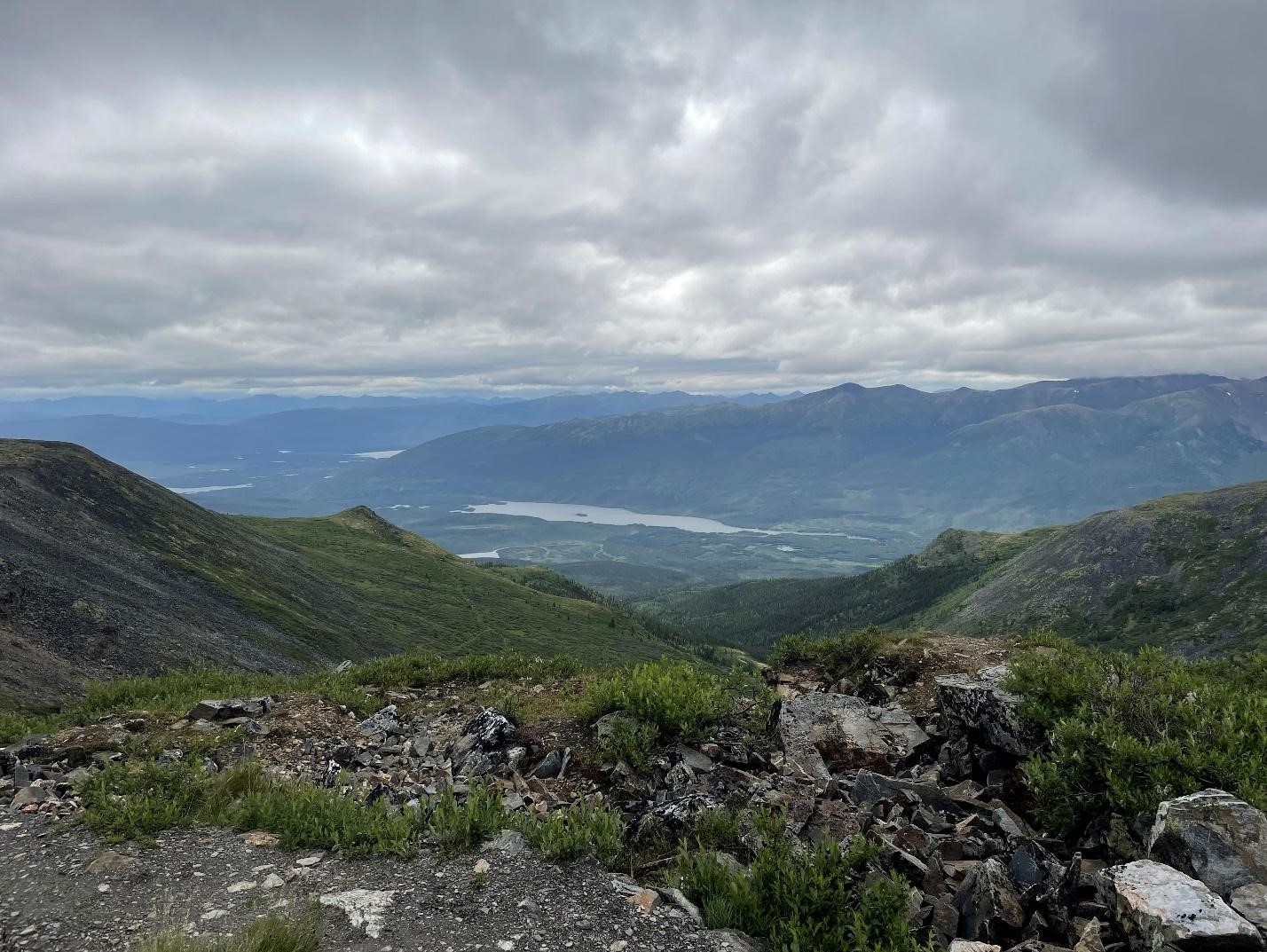MA Student Catherine Littlefield talks about her experience with community-based research with the First Nation of Na-Cho Nyäk Dun
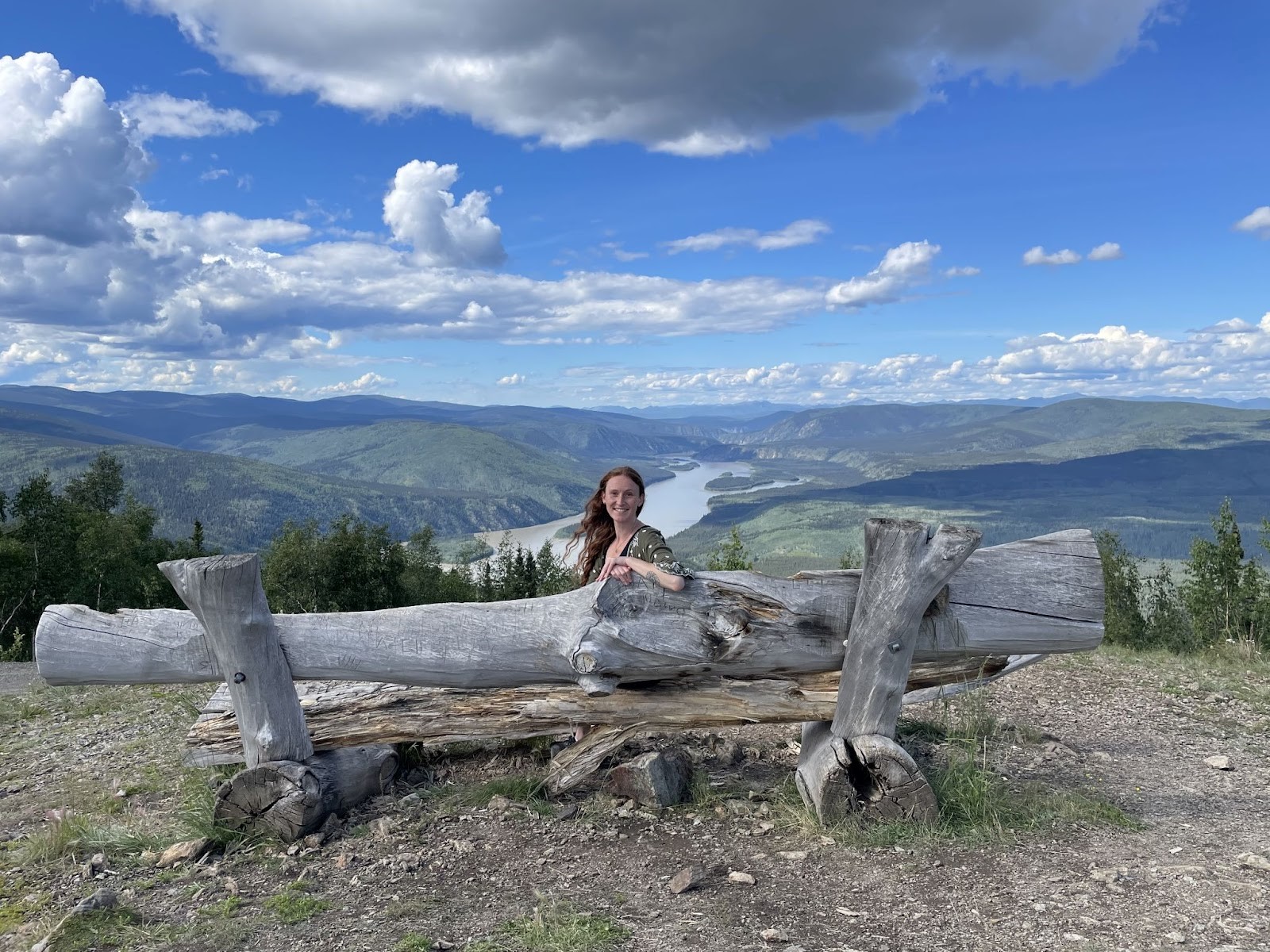
My Experience with Community-Based Research with the First Nation of Na-Cho Nyäk Dun
By Catherine Littlefield
MA Political Economy Student
Photos provided by Catherine Littlefield
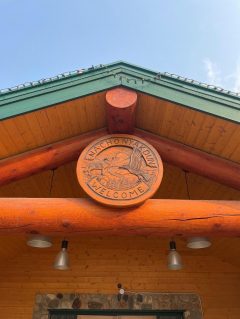
After completing the first two terms of my M.A. with the Institute of Political Economy, I’ve started my thesis research this summer and have been staying in Mayo, Yukon while working with the First Nation of Na-Cho Nyäk Dun (NND). NND is a self-governing Northern Tutchone First Nation with a traditional territory that spans central and northern Yukon. I entered this program knowing that community-based food systems research was the direction I wanted to take. NND and Carleton University signed a Memorandum of Understanding (MoU) in 2020 to facilitate a collaborative research partnership to co-create and share knowledge, from which this research opportunity emerged. NND identified the research priority of food-related strategies and programs to work towards sustainable and balanced futures. The research I am engaged in aims to support NND’s food security, cultural continuity, and greater Indigenous food sovereignty. I have been working with community partners on the direction and process of this research, with the hope of generating insights into how customary food practices and potlatch traditions might contribute to NND’s community economy, well-being, and food systems governance.
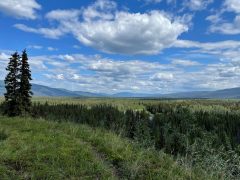
I’ve now been in NND’s traditional territory for about a month and a half. Spending a significant amount of time here was important to me to be able to build connections, as community-based research is all about relationships. I have learned so much here, not just from research interviews, but from every conversation and experience I have gotten to be a part of. NND has been so welcoming to students like myself and I am immensely grateful for that. I spend my time engaging in interviews, community events, reading, exploring, reflecting, and learning. I have been learning from both the people and the land, and I am honoured to have had the chance to learn about a variety of things including food practices, traditional ecological knowledge, First Nations governance, community wellness, local changes and challenges, and more.
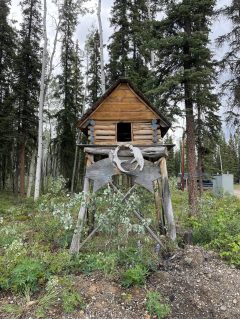
NND’s traditional foods and medicine include various animals and plants such as moose, caribou, salmon, grayling, grouse, bear root, and many kinds of berries. Within the intertwined contexts of an unpredictable climate, shifting animal patterns, and intensive mining and exploration in the territory, NND understands the need for change and adaptation in the food system. Traditionally a hunting and gathering society, the community is taking on a new adventure and opportunity with the recent purchase of the NND Farm, a future hub for developing food security and sovereignty as well as teaching and learning experiences.
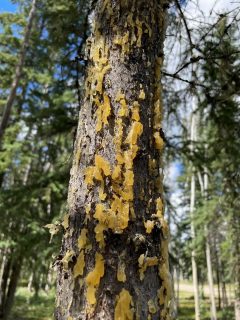
I have been studying food systems governance with a focus on food distribution and culturally informed food systems planning. I have been conducting conversation style interviews with NND citizens, Elders, and government representatives. The interviews include questions on food systems, governance, potlatch traditions, and community well-being and the responses have been filled with stories, laughter, heart, and great insight. Each interview has been truly amazing, and I learn about so much more than food, though I increasingly believe in the centrality and connective power of food in all our lives. People have been very giving and generous with me, sharing more than just conversations and welcoming me into their home. I have been given a desk at the NND Government House during my time here and feel more than welcomed around the office. I have been taught about harvesting practices, toured a family smokehouse, went to an eagle’s nest to collect feathers, and eaten fresh rhubarb and lettuce gifted from local gardens. I am so thankful for the time I have shared here and am already hoping to return one day.
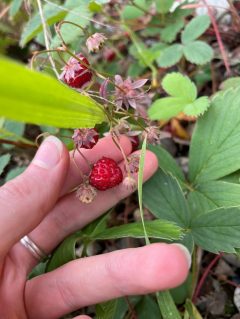
Beyond the interviews, participating in community events has been very conducive to both perspective and connection, including NND’s annual General Assembly, National Indigenous Peoples’ Day celebrations, community engagement meetings, and casual get togethers. Relationship building is paramount for reciprocal research and learning how to give back in a good way. Giving back is very important to me throughout this process particularly as the community has been so inclusive and generous, for which I am very grateful and hope to offer meaningful research outputs in return. On a personal level, this includes the simple joys of sharing time, space, and kindness, listening and learning with care and respect. During my time here, I do my best to take up all the opportunities I am able to. Having flexibility has also been important, being open to whatever experience I may have on any given day and adapting to new and changing circumstances.
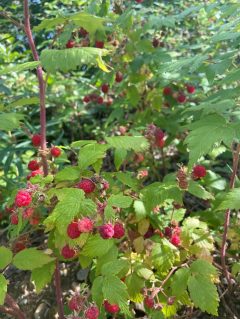
While spending time here in a small, northern community, I have also become closer with the realities of the socioecological crises we are facing. The complexities of political economic relations, the costs of food, the impacts of trauma on people and land, and the uncertainty of our changing environment are some examples of the ways these are felt. Early in the month of July, Yukon experienced an extraordinary wildfire season coupled with flooding and a highway closure on the only road that connects the community of Mayo with Whitehorse, the main hub of the territory. The precarity of the food system, from dwindling animal populations, to industry pollution, to the uncertainty of the supply chain, is very evident during these times. The community of Mayo was under evacuation alert due to fire proximity and air quality for about a week. It was smokey and tense, but in the end, rain and cool weather came as blessings and helped the incredible work of wildland firefighters.
My favourite memories that I have had here have been on-the-land experiences. Even though this seems to be the worst year for mosquitoes yet (and there are many), exploring NND’s traditional territory has been breathtaking. Toward the beginning of my time here, I attended a seed collection workshop to learn about native plants and seeds and how these can be used in reclamation projects. We learned respectful harvesting practices from NND Elders, and I am reminded to always give thanks and give back to the land for the gifts of the Earth that we are so grateful to be receiving. An NND Elder who has become a friend of mine taught me how to collect pitch (spruce resin) and boil it down to make a healing salve, traditional medicine. I’ve collected wild rose and fireweed petals and harvested berries, all of which grow in abundance here. The wild strawberries and raspberries have been my favourites so far.
My time here has not been without challenge and uncertainty, but I wouldn’t change it one bit and have learned more than I could have hoped for. I carry this experience with me as I head back home soon to get into writing both my thesis and community reports. I would strongly recommend community-based and on-the-land experiences to anyone and everyone where they are able! Research should be relational and reciprocal so we can better learn how to make meaningful differences in the world we study.
This research was made possible through an internship with NND’s Development Corporation (NNDDC) funded by Mitacs. NNDDC is the First Nation’s primary business arm, investing in and managing local businesses and real estate such as the grocery store in Mayo. NNDDC also manages relationships with businesses that invest and operate in the NND traditional territory to create employment opportunities and provide services for the NND community.
